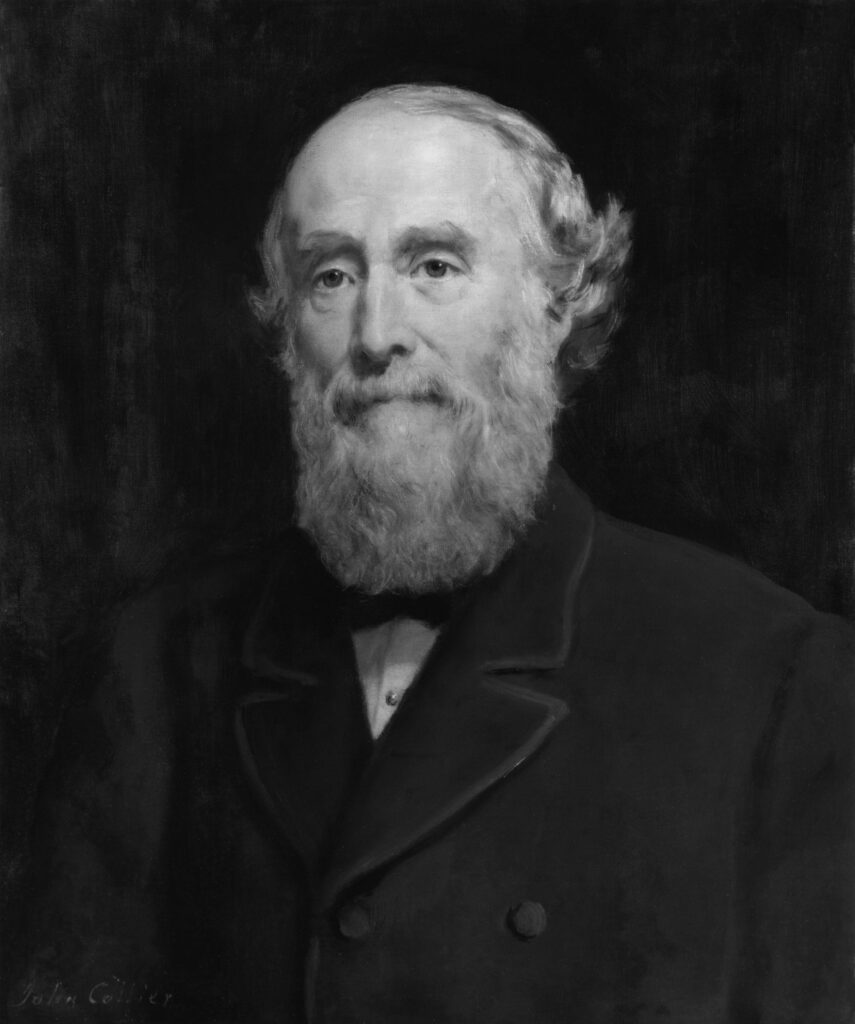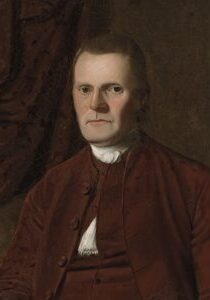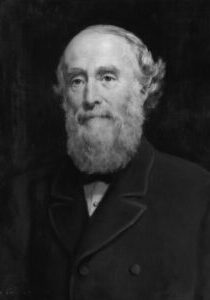George Williams
October 11, 1821 - November 6, 1905
Founder of the Young Men's Christian Association (YMCA)
Founder of the Young Men's Christian Association (YMCA)
From Dulverton, Somerset, England
Served in London, England
Affiliation: Congregational
"Prayer and faith have won victories in the past fifty years but these may'be, -will be -as nothing to what shall yet be wrought through the power of Christ resting upon you. I sincerely pray that you may each be fitted with the Holy Spirit. Let it be the aim of each to be able to say, 'I can do all things through Christ, who strengthens me.'"
George Williams was an English philanthropist and social reformer best known as the founder of the Young Men’s Christian Association, or YMCA. His life’s work was deeply shaped by his own experience as a young man in industrial England, and by his conviction that Christian faith should be a public force for good. His vision and persistence gave rise to a global movement that continues to this day.
Williams was born in Somerset, England, in 1821, the youngest of eight children in a farming family. As a boy, he later recalled, he was careless, profane, and largely indifferent to religion. That changed when, at age sixteen, he was apprenticed to a draper’s shop in Bridgwater. While working there, Williams had a powerful spiritual conversion, joining the local Congregational church and dedicating himself to a life of Christian service.
In 1841, Williams moved to London to work for a larger drapery firm. There he found a city full of opportunity but also moral danger, especially for young working men who had few places to go outside of the job. Many of them fell into habits of drinking, gambling, or other vices that were both spiritual dangers and social ills. Williams was convicted that something had to change. He began holding small prayer meetings and Bible studies with some of his co-workers in their shared lodgings above the store. Out of this came a broader vision: a society devoted to the spiritual welfare of young men like themselves.
On June 6, 1844, at just twenty-two years old, Williams and eleven of his fellow workers formally established the Young Men’s Christian Association. Its purpose, as he put it, was “the improvement of the spiritual condition of the young men engaged in houses of business, by the formation of Bible classes, family and social prayer meetings, mutual improvement societies, or any other spiritual agency.” The group offered a wholesome alternative to the temptations of the city through spiritual formation, moral support, and a sense of community.
From the beginning, the YMCA grew. Other young men’s groups in London joined, and soon branches were being established across England and, eventually, across the world. The organization’s scope widened as it took on new aspects of personal development. One of the defining ideas that took root during this expansion was what became known as “Muscular Christianity,” which was the belief that Christian character should include strength, health, and vigor, not just piety. YMCA facilities began to include gymnasiums and exercise programs, and later became the birthplace of modern sports like basketball and volleyball.
Muscular Christianity was a 19th-century movement that emphasized the connection between physical strength, moral integrity, and Christian character. It arose in England and the United States during a time of rapid industrialization and urbanization, when many Christians became concerned that traditional forms of piety were losing their influence, especially among young men. Proponents of Muscular Christianity believed that true Christian manhood required more than prayer and Bible reading, adding that it required physical vigor, discipline, and active engagement with the world. They saw the body as a gift to be strengthened and used in service of others. This philosophy was often expressed through sports, outdoor activity, and social engagement. Figures like Charles Kingsley and Thomas Hughes were early advocates, and the YMCA became one of the most influential institutional expressions of the movement. Muscular Christianity encouraged men to be strong in body and spirit so they could stand against moral decay and lead lives of service and integrity. It also helped inspire the inclusion of athletics in schools and churches, giving rise to a lasting tradition of physical education with moral purpose. At its core, Muscular Christianity aimed to unify faith and action in the pursuit of social good.
Williams did not see a contradiction between business and faith. He continued to work at the drapery firm, eventually becoming a partner and then sole proprietor. In 1853, he married Helen Hitchcock, the daughter of his employer. They had seven children together. But even as he became a successful businessman and family man, he remained active in YMCA work and in other philanthropic ventures. His personal conviction remained rooted in the idea that Christian faith must translate into action, especially on behalf of the vulnerable.
His efforts did not go unnoticed. In 1894, on the 50th anniversary of the YMCA, Williams was knighted by Queen Victoria. He also received the Freedom of the City of London, one of the highest civic honors of the time. By then, the YMCA had grown into a worldwide movement, with branches on every continent, offering everything from Bible studies to vocational training, lodging, athletic clubs, and missionary outreach.
Williams died in 1905, and his funeral was held in St. Paul’s Cathedral, a rare honor. He is buried there as well. His legacy lives on in the tens of thousands of YMCA locations around the world, but also in the broader movement he helped inspire—one that sought to meet the needs of the whole person: body, mind, and spirit.
The YMCA has left a lasting cultural legacy as a global institution promoting youth development, healthy living, and social responsibility. It pioneered programs that combined physical fitness with spiritual and moral education, helping to shape the modern gym movement, recreational sports, and community outreach. The YMCA played a key role in the invention of basketball and volleyball, and it expanded worldwide as a trusted center for personal growth and civic engagement. Today, the YMCA operates in over 120 countries, serving more than 60 million people annually, and remains one of the most recognized and respected nonprofit brands in the world.
George Williams believed that faith should be active. It should build community. It should protect and uplift the vulnerable. In an age of enormous industrial change, Williams refused to accept that urban progress had to come at the cost of young men’s souls. He imagined and built something better by living out his Christian convictions in public. His legacy is one of muscular, persistent, faithful activism that shaped Victorian England and continues well into the modern world.




